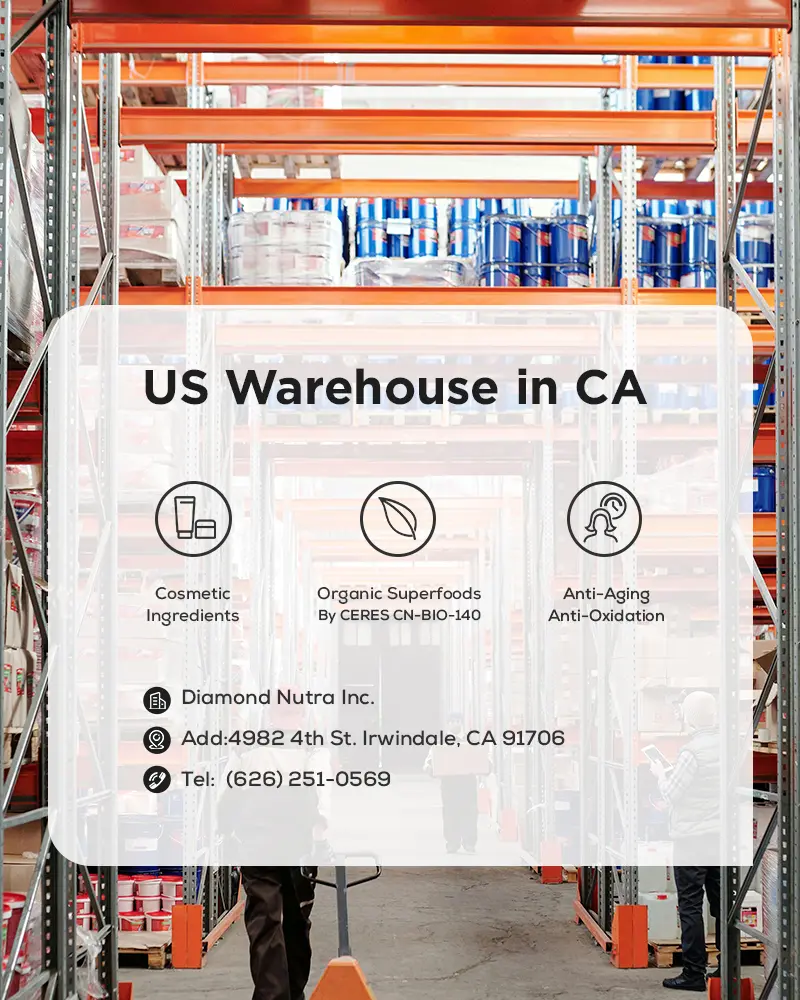Natural Colorants
Tannic Acid
|
Product Name
|
Tannic Acid
|
|
Plant Source
|
Gallnut
|
|
Spec.
|
10%
|
|
Appearance
|
Brown Powder
|
|
Certification
|
ISO,Halal,Kosher,EU&NOP Haccp, etc.
|
PRODUCT INTRODUCTION
What is Tannic Acid?
Tannic acid is a substance extracted from the fruit of the Chinese gallnut, which mainly contains a large amount of soluble tannin. The Chinese gallnut has a wide range of uses, including medicine, environmental protection, and beauty. The pharmacological effects of the Chinese gallnut are mainly attributed to its tannic acid, which is extracted from the unripe astringent persimmon fruit. In addition, tannic acid is a macromolecule composed of many phenolic hydroxyl groups, which can bind to odor factors to reduce or eliminate odor.
|
Product Name
|
Tannic Acid
|
|
Plant Source
|
Gallnut
|
|
Spec.
|
10%
|
|
Appearance
|
Brown Powder
|
|
Certification
|
ISO,Halal,Kosher,EU&NOP Haccp, etc.
|
Effects of tannic acid
Astringent effect
Tannic acid can bind to proteins, causing them to coagulate and precipitate, thereby forming a protective film on the surface of the skin and mucous membranes, which has an astringent effect:
Hemostasis: It can be used for small-area traumatic bleeding, such as skin abrasions, bleeding gums, etc., to achieve hemostasis by constricting blood vessels and coagulating blood.
Protecting mucosa: It has a certain protective effect on the gastrointestinal mucosa, can reduce intestinal secretions, and relieve diarrhea (such as diarrhea caused by acute gastroenteritis).
Antibacterial and anti-inflammatory
Tannic acid has an inhibitory effect on a variety of bacteria, fungi and other microorganisms:
Inhibit pathogens: It can destroy the structure of bacterial cell membranes and inhibit the growth and reproduction of bacteria. It can be used to treat some infections caused by bacteria or fungi, such as oral ulcers, skin fungal infections, etc.
Relieve inflammatory response: By inhibiting the release of inflammatory mediators, it can reduce local inflammation and relieve symptoms such as redness, swelling, and pain.
Antioxidant
As a polyphenol, tannic acid has strong antioxidant properties:
Free radical scavenging: It can neutralize free radicals in the body, reduce the damage of free radicals to cells, and delay cell aging.
Cardiovascular protection: Antioxidant effect helps to lower blood lipids and inhibit lipid peroxidation, which may be helpful in preventing cardiovascular diseases such as atherosclerosis.
Other effects
Detoxification: It can combine with certain heavy metals (such as lead, mercury), alkaloids, etc. to form insoluble complexes, reduce their absorption in the body, and play a certain detoxification role.
In the food industry: It can be used as a preservative and clarifier to extend the shelf life of food and improve the taste and stability of beverages (such as wine).
Have any questions?
Let's get in touch!
Contact us if your are thinking of purchasing highquality ingredients, develop new products, or justsolving a manufacturing challenge in your rawmaterials.




















